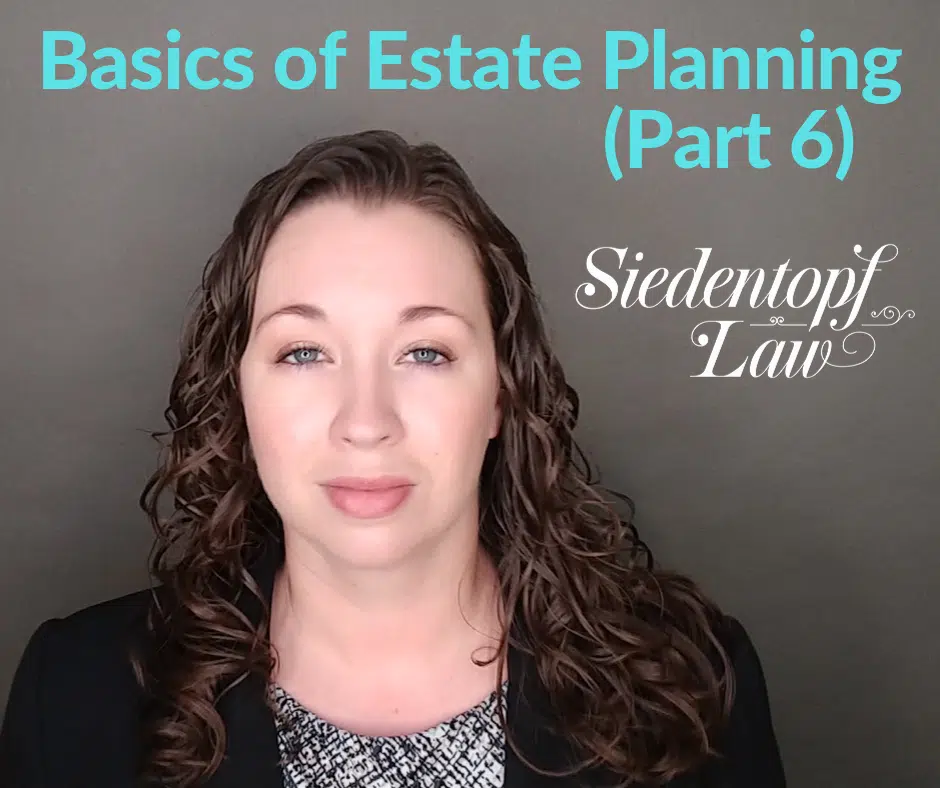In the final installment of our Basics of Estate Planning series, estate planning and probate attorney Sarah Siedentopf talks about how and where to safely store your estate planning documents.
TRANSCRIPT: Hi, I’m attorney Sarah Siedentopf. I’m an estate planning and probate attorney in Atlanta, Georgia. Estate planning basics: now that I have my documents, what do I do with them? A very common question when I hand clients a package of documents we’ve just gotten done signing them is sort of a blank look followed by, “Where do I put these?” “What do I do with them?” and it depends on the document, but let’s go through that. First of all, the will. You want to put it somewhere safe. You may, and I use “may” in the sense of you are able to but do not have to, file the will with the probate court of the county you live in if you wish to for safekeeping. However, you don’t have to and a lot of times I recommend against it because it’s an extra, unnecessary step should you ever want to change your will. But, you can file it with the court or you can put it wherever your documents are that are important to you. You will want to make sure that someone, probably the executor in your will and maybe two someones if your spouse is the executor, make sure that someone else knows as well, where are these documents. So the will, you’re going to keep that original very, very safe. The power of attorney, on the other hand, you are going to keep the original very, very safe with your documents. But you’re probably going to give a copy of it to whoever you designated as power of attorney. That way, if they need to use it, they have it. The medical advance directive, similarly, you’re going to give that to your doctor. Any time you go to the hospital, you’re going to give a copy of it to the hospital. You want to make sure that any medical personnel that might need to contact your decision maker knows who that person is, has contact information, that it is on file with your medical chart. Similarly, the designation of standby guardian, if you have children, you’re going to keep the original with your important documents. But you’re also going to give a copy to whoever you have designated as your standby guardian. That way, if they ever need to use it they have it. So, it’s very important that you put the documents in a safe place but also give copies to the people that need them, so that if your documents need to come into play they are ready to jump into action. If you put the documents and the copies in a box somewhere and you don’t tell anyone where those are, it may end up not being very helpful when the time comes, because people won’t even know that you did them, much less where to look for them. So, if you’ve got questions about estate planning documents and what to do with them, I’d love to hear from you. Thanks.
For more on the storing and safeguarding of your estate planning documents, you can read our blog Now that I have a will, where should I keep it?
Basics of Estate Planning series – Quick Links:
- Basics of Estate Planning (part 1) – Protecting yourself, your family and your assets
- Basics of Estate Planning (part 2) – What are wills?
- Basics of Estate Planning (part 3) – What is a financial power of attorney and why would you want one?
- Basics of Estate Planning (part 4) – What is the Advance Directive for Health Care and why you would need one?
- Basics of Estate Planning (part 5) – What is a Standby Guardian and why you should designate one for your children?
- Basics of Estate Planning (part 6) – How and where to safely store your estate planning documents








